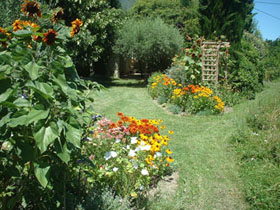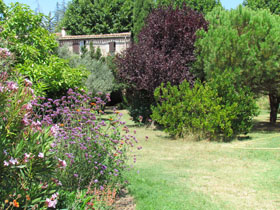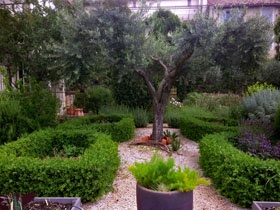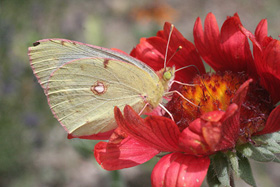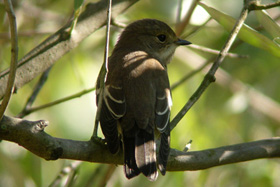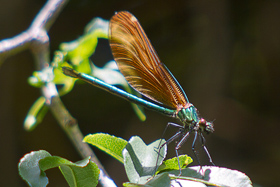Click on the images to enlarge them
Everybody has a different vision of what a garden should be: an “outside room” with swimming pool and barbecue; a place for children to play; a productive area for fruit and vegetables; a place to grow flowers and propagate plants; or a zone of purely aesthetic beauty, to be looked at and admired by family, friends or the general public.
Wildlife gardeners have a different vision. For them a garden is a single eco-system, a complete whole where each element, from the ground up, supports all the others to produce an environment where all kinds of life can flourish. Don’t worry, this doesn’t mean that you can’t grow flowers and vegetables or let children play, or that your garden has to look like a bomb-site. A wildlife garden can be just as beautiful as the best-kept show garden, with the added benefit that it will be full of butterflies, bees, birds, lizards, small (and sometimes large) mammals.
Why is gardening for wildlife important? Well, biodiversity is under threat as never before. We all know about the effects of climate change. Average temperatures are increasing worldwide. Water is becoming scarcer. In many countries (including the Mediterranean area), land is being built over more and more quickly to accommodate increasing populations. The use of pesticides and herbicides is widespread in agriculture. As a consequence, insect and bird populations are in decline, in some cases catastrophically. There’s no way of knowing what will happen if the trend continues unchecked, except that we know the consequences won’t be good.
However the good news is that there’s something all gardeners can do. Under the right conditions, our gardens can be a precious refuge for hard-pressed species. So if enough of us garden for wildlife, we can do something to halt or at least slow down the trend. So how do you garden for wildlife? Click here to find out.
Text: Michèle Bailey
Photos: Michèle Bailey & Ian Davis
Go to top of page
